 Sign in
Sign in
TV & Film
Karina Longworth
You Must Remember This is a storytelling podcast exploring the secret and/or forgotten histories of Hollywood’s first century. It’s the brainchild and passion project of Karina Longworth (founder of Cinematical.com, former film critic for LA Weekly), who writes, narrates, records and edits each episode. It is a heavily-researched work of creative nonfiction: navigating through conflicting reports, mythology, and institutionalized spin, Karina tries to sort out what really happened behind the films, stars and scandals of the 20th century.

82: The Blacklist Part 12: Stormy Weather: Lena Horne + Paul Robeson
Horne's last years at MGM overlapped with the first HUAC hearings. Horne, an outspoken proponent of equal rights, who from the beginning of her career had associated with leftists and “agitators,” got caught up in the anti-communist insanity. One of those agitators was Paul Robeson, a singer, actor and political firebrand who was a mentor and friend to Horne. But once the red panic began to heat up, that friendship became problematic for Lena, and like so many others, she was forced to choose between her career and her friendships.
To learn more about listener data and our privacy practices visit: https://www.audacyinc.com/privacy-policy
Learn more about your ad choices. Visit https://podcastchoices.com/adchoices
47:2217/05/2016

Blacklist Flashback: Lena Horne During WWII
Stunning singer/actress Lena Horne was the first black performer to be given the full glamour girl star-making treatment. But as the years went on and her studio failed to make much use of her, Horne started feeling like a token — and she wasn’t wrong. Today we’ll detail Horne’s experiences rising through the ranks of the black nightclub world to MGM, where she remained under contract through the 1940s, and found herself competing with Ava Gardner for parts. Next week, we’ll talk about Horne’s post-MGM career and her struggle to stay off the blacklist. This episode originally ran in February 2015.
To learn more about listener data and our privacy practices visit: https://www.audacyinc.com/privacy-policy
Learn more about your ad choices. Visit https://podcastchoices.com/adchoices
01:09:2410/05/2016

81: The Blacklist Part 11: Born Yesterday: Judy Holliday
Judy Holliday won an Oscar for her first starring film role, and of her eight major film roles between 1950 and 1960, four were in films now considered classics. She was one star who was subpoenaed to testify about her ties to Communism who was fully supported by her studio and subsequently wasn’t blacklisted from movies. Holliday’s career was short-lived nonetheless, in part because she represented a highly idiosyncratic, working-class, urban, Jewish authenticity in a time when conformity was being peddled as an equivalent to safety. This episode is brought to you by Smith and Noble. Contact Smith & Noble today for 25% off on your window treatments plus free design consultation. Go to smithandnoble.com/REMEMBER This episode is also brought to you by The Great Courses Plus. For a limited time, The Great Courses plus is offering my listeners a chance to stream hundreds of their courses for FREE at thegreatcoursesplus.com/REMEMBER
To learn more about listener data and our privacy practices visit: https://www.audacyinc.com/privacy-policy
Learn more about your ad choices. Visit https://podcastchoices.com/adchoices
47:5703/05/2016

80: The Blacklist Part 10: Salt of the Earth: Howard Hughes + Paul Jarrico
Today we explore one of the more troubling aspects of Howard Hughes’ legacy: the firm hand he played in enforcing the blacklisting of Hollywood workers, both as the head and owner of RKO Pictures, and as a powerful rich guy whose influence went as high as the U.S. Congress. This episode also tells the story of Paul Jarrico, the first screenwriter to be taken to court by a studio (RKO) over the question of his firing during the blacklist period. In partnership with the also-blacklisted writer Michael Wilson and director Herbert Biberman, Jarrico then made Salt of the Earth, a pro-Union, proto-feminist, Neorealist-influenced independent film which the blacklisting-supporting unions effectively silenced, with the help of the media, politicians, and Hughes. This episode is brought to you by 1-800-Flowers. Order One Dozen beautiful, assorted Roses and receive another Dozen Roses and a vase for FREE – just $29.99. Go to 1800Flowers.com/REMEMBER. This episode is also brought to you by Slack. Visit Slack.com/REMEMBER. Create a new team and you’ll get $100 in credit for when you decide to upgrade to a paid plan.
To learn more about listener data and our privacy practices visit: https://www.audacyinc.com/privacy-policy
Learn more about your ad choices. Visit https://podcastchoices.com/adchoices
57:0426/04/2016

Blacklist Flashback: Howard Hughes + Jane Russell
In advance of next week’s episode dealing with Howard Hughes’ role in the blacklist, we revisit our October 2014 episode on Hughes’ relationship with Jane Russell, his wartime efforts to balance his aviation and moviemaking businesses, and his shaky run as head of RKO Pictures. Also: Ava Gardner gets violent, Hughes’ 15 year-old muse, and how Russell’s boobs did what the Spruce Goose couldn’t.
To learn more about listener data and our privacy practices visit: https://www.audacyinc.com/privacy-policy
Learn more about your ad choices. Visit https://podcastchoices.com/adchoices
53:0919/04/2016

79: The Blacklist Part 9: She: Richard Nixon + Helen Gahagan Douglas
The wife of actor Melvyn Douglas (Ninotchka, Being There), Helen Gahagan Douglas transformed herself from a Broadway and opera star into an exciting new politician in the days of FDR. A persistent, nagging voice of conscience in Congress during the time of HUAC and nuclear panic, Douglas’ political career came to an end amidst irresponsible allegations that she was a Communist supporter -- many of which were leveled at her by her opponent in the 1950 Senate race, Richard Nixon. This episode is brought to you by 1-800-Flowers. Order One Dozen beautiful, assorted Roses and receive another Dozen Roses and a vase for FREE – just $29.99. Go to 1800Flowers.com/REMEMBER. This episode is also brought to you by The Great Courses Plus. For a limited time, The Great Courses plus is offering my listeners a chance to stream hundreds of their courses for FREE at thegreatcoursesplus.com/REMEMBER.
To learn more about listener data and our privacy practices visit: https://www.audacyinc.com/privacy-policy
Learn more about your ad choices. Visit https://podcastchoices.com/adchoices
53:0812/04/2016
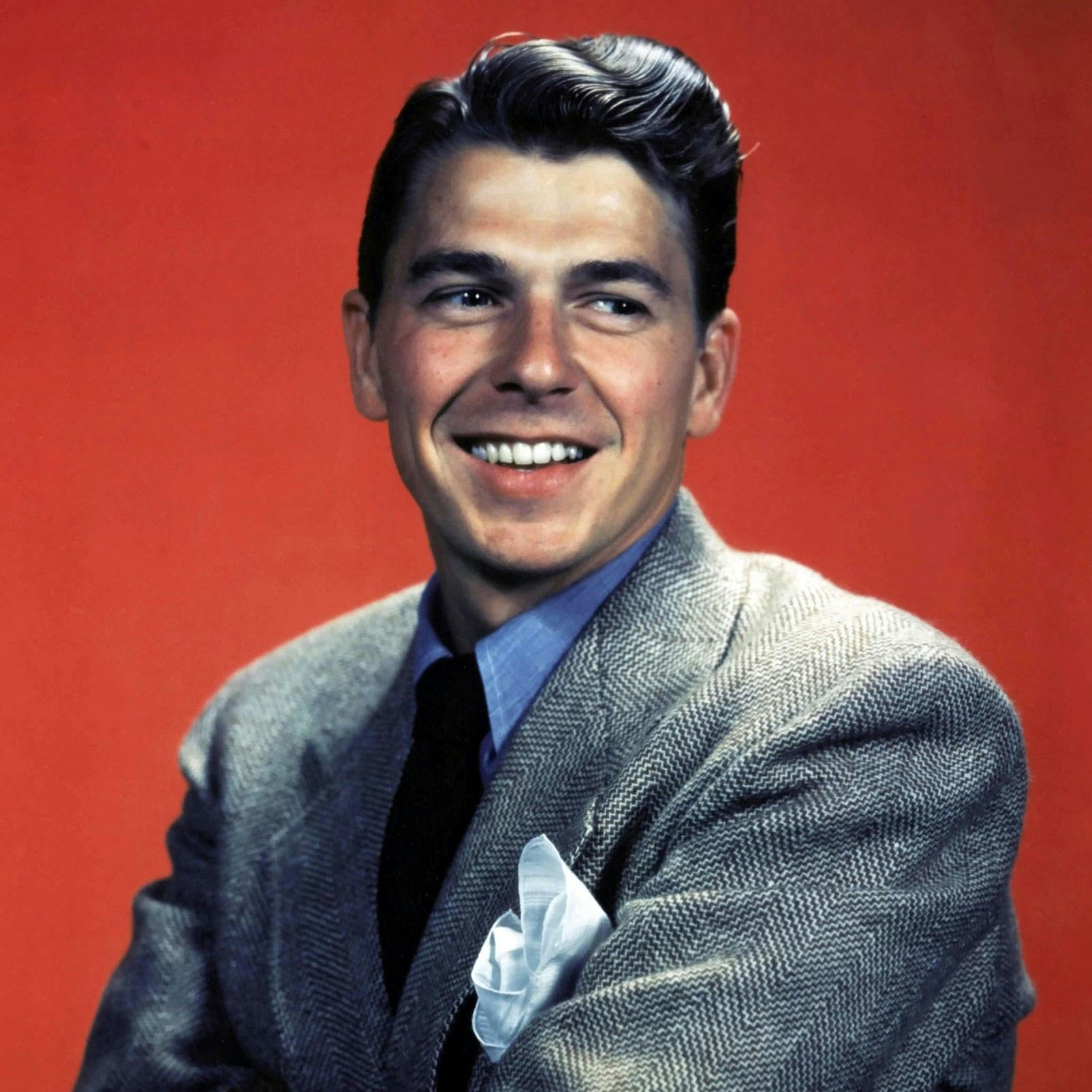
78: The Blacklist Part 8: Storm Warning: Ronald Reagan, the FBI and HUAC
The post-war Communist witch hunt had a big impact on Ronald Reagan’s evolution from movie actor to politician, and from Democrat to Republican. And Ronald Reagan had a major personal impact on the witch hunt’s manifestation in Hollywood, the Blacklist. This episode will trace the years in which Reagan was primarily known as a movie and TV star, and explore his two marriages to actresses, his testimony to HUAC, his behind-the-scenes work as an informer to the FBI, his late-career incarnation as bridge between Hollywood and corporate America, and more.
To learn more about listener data and our privacy practices visit: https://www.audacyinc.com/privacy-policy
Learn more about your ad choices. Visit https://podcastchoices.com/adchoices
37:4605/04/2016

77: The Blacklist Part 7: Monsieur Verdoux: Charlie Chaplin's Road to Hollywood Exile
Picking up where last week’s episode left off, we’ll catch up with Chaplin’s post-The Great Dictator activism, talk about Chaplin’s savage satirical follow-up, Monsieur Verdoux, and explain the witch hunt that ended with him forced to leave his adopted home, and Hollywood career, behind. This episode is brought to you by Audible.com, who has more than 180,000 audiobooks and spoken-word audio products. Get a free audiobook of your choice at audible.com/REMEMBER. This episode is also brought to you by Blue Apron. You can get your first two meals for free at BlueApron.com/REMEMBER.
To learn more about listener data and our privacy practices visit: https://www.audacyinc.com/privacy-policy
Learn more about your ad choices. Visit https://podcastchoices.com/adchoices
41:2529/03/2016
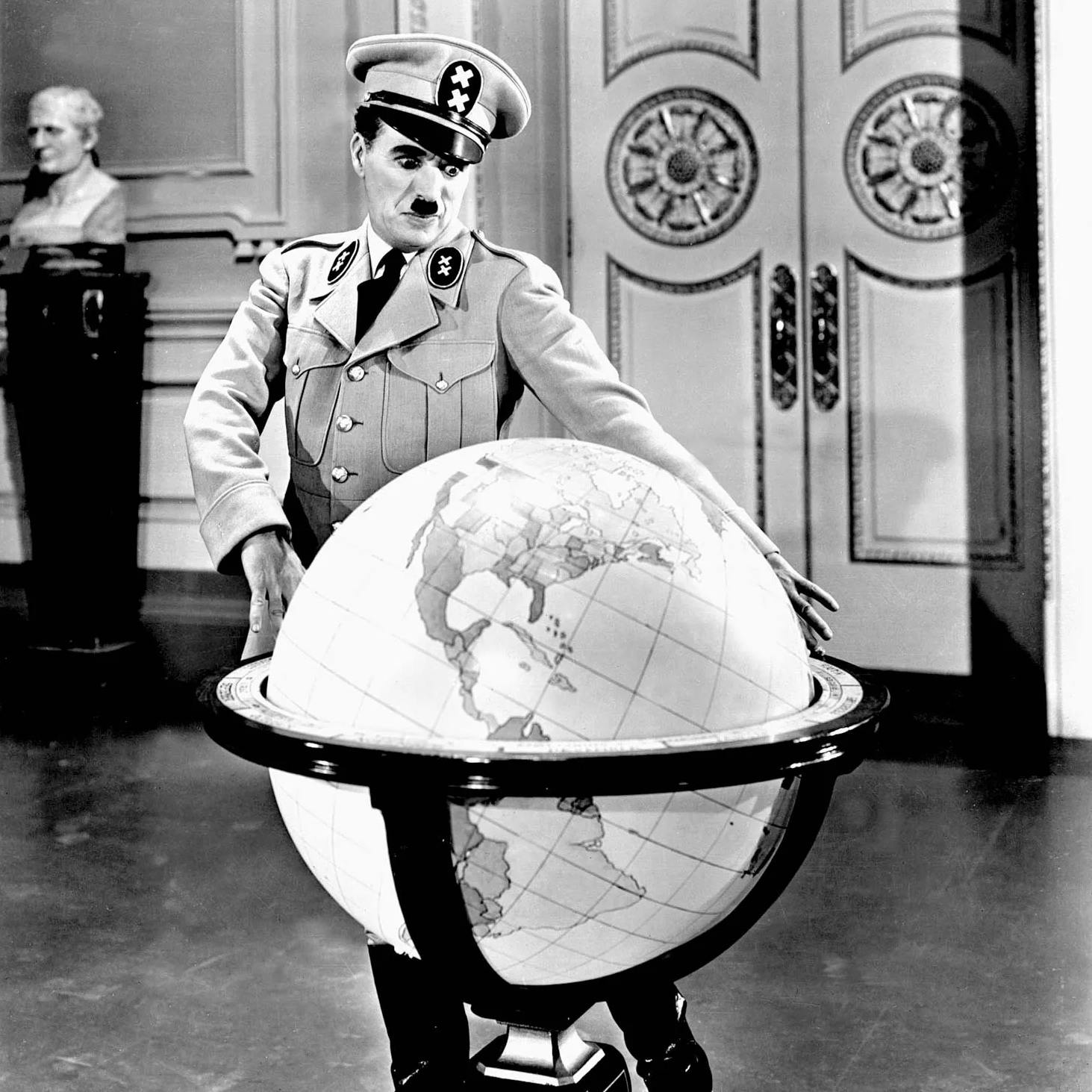
Blacklist Flashback: Charlie Chaplin During World War II
In 1922, Charlie Chaplin was one of the most beloved men in the world. In 1952, after over a decade of being publicly shamed, he was essentially manipulated into self-deportation. What happened in between? We’ll explain over two episodes, beginning with this flashback to an episode that originally ran in March 2015, detailing Chaplin’s politics, his fascination with Adolf Hitler, the making and release of The Great Dictator, and the sex scandal that gave J. Edgar Hoover an opening to persecute Chaplin.
To learn more about listener data and our privacy practices visit: https://www.audacyinc.com/privacy-policy
Learn more about your ad choices. Visit https://podcastchoices.com/adchoices
47:3722/03/2016

76: The Blacklist Part 6: He Ran All The Way: John Garfield
John Garfield was Brando before Brando -- a Method-style actor who repped the New York working class while becoming a major sex symbol in film noir and World War II films. Garfield was not a Communist; most of his friends -- and his wife -- were, but they mostly thought “Julie” was well meaning but not a serious political animal. HUAC disagreed, and in the early 1950s, Garfield became the biggest star to be blacklisted.
To learn more about listener data and our privacy practices visit: https://www.audacyinc.com/privacy-policy
Learn more about your ad choices. Visit https://podcastchoices.com/adchoices
49:4615/03/2016

75: The Blacklist Part 5: The Strange Love of Barbara Stanwyck: Robert Taylor
Barbara Stanwyck’s first marriage helped to inspire A Star is Born. Her second marriage, to heartthrob Robert Taylor, didn’t make sense in a lot of ways, but the pair were united by their conservative politics. Both joined the blacklist-stoking Motion Picture Alliance for the Preservation of American Ideals, but only Taylor testified before HUAC. Called to shame MGM for forcing him to star in wartime pro-Soviet film Song of Russia, Taylor would become the only major star to name names. Today we’ll talk about Taylor and Stanwyck’s relationship, and the difference between her groundbreaking career as the rare actress who refused to sign long term studio contracts, and his much more conventional experience as MGM chattel.
To learn more about listener data and our privacy practices visit: https://www.audacyinc.com/privacy-policy
Learn more about your ad choices. Visit https://podcastchoices.com/adchoices
50:0108/03/2016

74: The Blacklist Part 4: The African Queen: Humphrey Bogart, Katharine Hepburn and John Huston
In the late 1940s, as the country was moving to the right and there was pressure on Hollywood to do the same, Katharine Hepburn, Humphrey Bogart and John Huston all protested HUAC in ways that damaged their public personas and their ability to work in Hollywood. Hepburn’s outspokenness resulted in headlines branding her a "Red" and, allegedly, audiences stoning her films. Bogart and Huston were prominent members of the Committee For the First Amendment, a group of Hollywood stars who came to Washington to support the Hollywood Ten -- and lived to regret it. With their career futures uncertain, the trio collaborated on the most difficult film any of them would ever make, The African Queen.
To learn more about listener data and our privacy practices visit: https://www.audacyinc.com/privacy-policy
Learn more about your ad choices. Visit https://podcastchoices.com/adchoices
51:4601/03/2016

Blacklist Flashback: Bogey Before Bacall
Humphrey Bogart was Warner Brothers' most valuable star in 1947, when he, his wife Lauren Bacall, his future African Queen co-star Katharine Hepburn, his friend and frequent director John Huston and many other stars actively protested HUAC. We'll get into that next week. This week, we're flashing back to our episode on Bogart from 2014, describing how the Casablanca star struggled to find his niche in Hollywood during the first part of his film career, the tough guy roles that changed things around, and finally his transformative romance with Lauren Bacall.
To learn more about listener data and our privacy practices visit: https://www.audacyinc.com/privacy-policy
Learn more about your ad choices. Visit https://podcastchoices.com/adchoices
44:3923/02/2016

73: The Blacklist Part 3: Dorothy Parker
The New Yorker columnist, poet and celebrated Algonquin Roundtable wit spent years in Hollywood, working as a screenwriter in partnership with her second husband, Alan Campbell, and contributing to important films such as the original A Star is Born and Alfred Hitchcock’s Saboteur. Much to the surprise of many of her closest friends, beginning in the late 1920s Parker became increasingly drawn to socialist causes. Parker’s political calling was merely socially problematic before World War II, when Parker spearheaded the formation of the Hollywood Anti-Nazi League; after the war, when Parker’s name was named before HUAC, her political convictions killed her Hollywood career at its peak.
To learn more about listener data and our privacy practices visit: https://www.audacyinc.com/privacy-policy
Learn more about your ad choices. Visit https://podcastchoices.com/adchoices
53:5716/02/2016

72: The Blacklist Part 2: Crossfire – The Trials of the Hollywood Ten
In 1947, the House Un-American Activities Committee subpoenaed dozens of Hollywood workers to come to Washington and testify to the presence of Communists in the film industry. 19 of those who were subpoenaed announced that they wouldn't co-operate with the Committee; of those 19, 10 "unfriendly" witnesses were called to the stand and refused to answer "The $64 Question": "Are you now or have you ever been a Communist?" Those 10 men were subsequently denied employment, imprisoned; afraid of collateral damage to the industry, the studio moguls were thus moved to design the Blacklist. This episode will explore the work and politics of the Hollywood Ten – and films on which they came together, such as Crossfire – and delve into the far-reaching consequences of their false assumption that the Constitution would protect them.
To learn more about listener data and our privacy practices visit: https://www.audacyinc.com/privacy-policy
Learn more about your ad choices. Visit https://podcastchoices.com/adchoices
59:2209/02/2016

71: The Blacklist Part 1: The Prehistory of the Blacklist
This episode will trace the roots of both communism and anti-communism in Hollywood, through the Depression, union struggles and scandals, and World War II. The major characters of the series will be introduced, including members of the Hollywood Ten like Dalton Trumbo and Edward Dmytryk, two Party members who collaborated on a film called Tender Comrade, which starred one of Hollywood's proudest Conservatives, Ginger Rogers. Tender Comrade epitomizes the political evolution that made the Blacklist happen: considered patriotic American propaganda during the War, the film was recast as problematically anti-capitalist after the war, and its makers branded with the epithet "prematurely anti-fascist."
To learn more about listener data and our privacy practices visit: https://www.audacyinc.com/privacy-policy
Learn more about your ad choices. Visit https://podcastchoices.com/adchoices
53:0602/02/2016

70: MGM Stories Part 15: Mayer’s Downfall
In the 1940s, Louis B. Mayer was the highest paid man in America, one of the first celebrity CEOs and the figurehead of what for most Americans was the most glamorous industry on Earth. In 1951, Mayer was fired from the studio that bore his name. What happened -- to Mayer, and to Movies on the whole -- to hasten the end of the golden era of hollywood?
To learn more about listener data and our privacy practices visit: https://www.audacyinc.com/privacy-policy
Learn more about your ad choices. Visit https://podcastchoices.com/adchoices
52:0322/12/2015

69: MGM Stories Part 14: Elizabeth Taylor, The MGM Years
Elizabeth Taylor grew up on the MGM lot, spending 18 years as what she referred to as “MGM chattel.” The last four years of that 18 year sentence were arguably the most interesting. From 1956-1960, she made a run of really interesting films including Giant, Cat on a Hot Tin Roof and Butterfield 8, and she met the “love of her life”, Mike Todd, and turned him into her third husband. When Todd died a year later Liz sought comfort in the arms of Todd’s friend - and Debbie Reynolds’ husband — Eddie Fisher. Taylor capped off the decade by almost dying, winning her first Oscar, and breaking free from MGM to become the highest paid actress up to that time. This episode is brought to you by Harry's. Make every morning he shaves feel like a Holiday. Harry’s will give you $5 off your first order with code REMEMBER. Free shipping for the Holidays ends on December 10th, so act now. Harrys.com enter code REMEMBER.
To learn more about listener data and our privacy practices visit: https://www.audacyinc.com/privacy-policy
Learn more about your ad choices. Visit https://podcastchoices.com/adchoices
47:4515/12/2015

68: MGM Stories Part 13: Gloria Grahame
Gloria Grahame arrived in Hollywood in 1944, after Louis B. Mayer personally plucked her from the New York stage, and changed her name. But Grahame was the rare actress who Mayer didn’t know how to turn into a star. Finally in 1947, Mayer gave up on Grahame and sold her contract to RKO, where she flourished as a femme fatale in film noir. Grahame's career would be marred by her compulsive plastic surgery, her increasingly eccentric on-set behavior, and gossip about her love life, which included marriages to both director Nicholas Ray, and his son, Tony. This episode is brought to you by Harry's. Make every morning he shaves feel like a Holiday. Harry’s will give you $5 off your first order with code REMEMBER. Free shipping for the Holidays ends on December 10th, so act now. Harrys.com enter code REMEMBER. This episode is also brought to you by The Message, a new science fiction podcast from Panoply and GE Podcast Theater. Search for The Message in iTunes.
To learn more about listener data and our privacy practices visit: https://www.audacyinc.com/privacy-policy
Learn more about your ad choices. Visit https://podcastchoices.com/adchoices
46:1708/12/2015

67: MGM Stories Part 12: Lana Turner
The legendary "Sweater Girl" was one of MGM’s prized contract players, the epitome of the mid-century sex goddess on-screen and an unlucky-in-love single mom off-screen who would burn through seven husbands and countless affairs. After nearly twenty years as a star not known for her acting prowess, Turner's career suddenly got interesting in the late 1950s, when the hits The Bad and the Beautiful, Peyton Place and Imitation of Life sparked a reappraisal of her talents. In the middle of this renaissance, Turner became embroiled in one of Hollywood history’s most shocking scandals: the murder of Turner’s boyfriend Johnny Stompanato at the hand of her 14 year-old daughter, Cheryl Crane.
To learn more about listener data and our privacy practices visit: https://www.audacyinc.com/privacy-policy
Learn more about your ad choices. Visit https://podcastchoices.com/adchoices
47:5201/12/2015
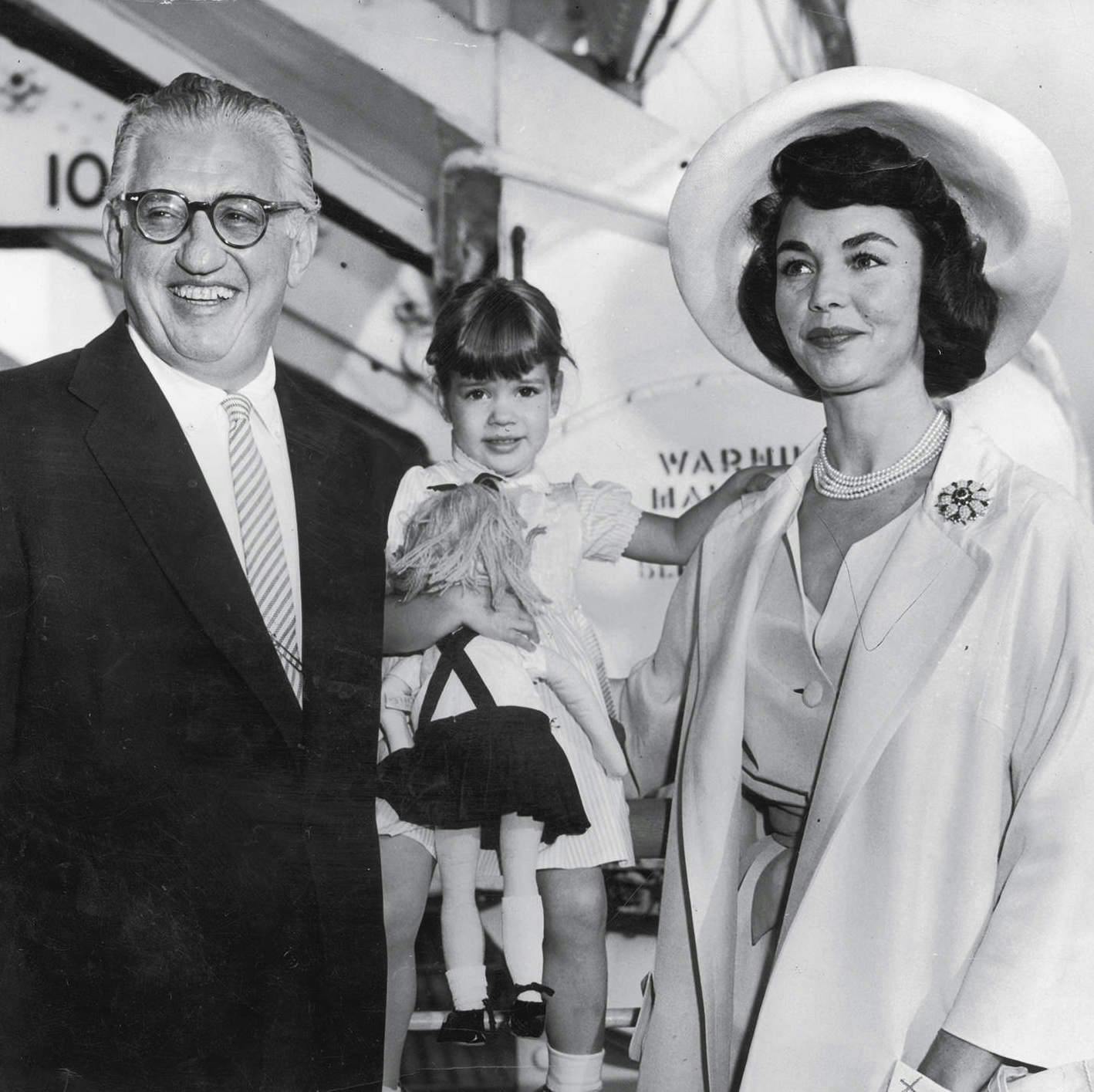
66: MGM Stories Part 11: David O. Selznick Part Two: Jennifer Jones and Robert Walker
In 1941, Selznick signed a young actress named Phylis, who was then married to actor Robert Walker. Selznick renamed Phylis “Jennifer Jones,” and set to work turning her into a star, helping her to earn an Oscar for her first film under her new name. Selznick and Jones also began an affair, and Selznick’s romantic and professional obsession with Jones would result in the destruction of both of their marriages, as well as at least two movies transparently about Selznick’s passion for his star actress. But in a tragic echo of Selznick’s own film A Star is Born, as he threw his weight behind turning Jones into a star, Selznick himself lost his footing in Hollywood. This episode is brought to you by Squarespace. Start building your website today at Squarespace.com. Enter offer code REMEMBER at checkout to get 10% off! Squarespace — Build it Beautiful.
To learn more about listener data and our privacy practices visit: https://www.audacyinc.com/privacy-policy
Learn more about your ad choices. Visit https://podcastchoices.com/adchoices
47:5824/11/2015

65: MGM Stories Part 10: David O. Selznick Part One: The Mayers and Gone With the Wind
In 1930, after putting in time at MGM and RKO, Paramount executive David O. Selznick married Irene Mayer, the daughter of L.B. Mayer. Irene’s father would soon thereafter bring Selznick to MGM to fill in for an ailing Irving Thalberg, but MGM was too small for Selznick’s dreams. He started his own independent studio, through which he created the original A Star is Born, the only Hitchcock movie to win Best Picture, and the biggest hit in the history of Hollywood, Gone with the Wind. This episode is brought to you by MUBI. To try MUBI for free for an entire month, go to mubi.com/rememberthis. This episode is also brought to you by Casper mattresses. Get $50 toward any mattress purchase by visiting www.casper.com/remember and using promo code REMEMBER. Terms and Conditions Apply.
To learn more about listener data and our privacy practices visit: https://www.audacyinc.com/privacy-policy
Learn more about your ad choices. Visit https://podcastchoices.com/adchoices
34:3517/11/2015

64: MGM Stories Part 9: Spencer Tracy
When Spencer Tracy signed with MGM, he was a character actor better known for his problem drinking (and very public extramarital affair with Loretta Young) than for his movie hits. But the studio made him a star, and by the time Katharine Hepburn was looking for a male star who could play a prototypical American male opposite her very idiosyncratic persona, Tracy was the obvious choice. Tracy and Hepburn became one of the most legendary Hollywood couples of the century, on-screen and off, and their partnership helped to canonize both as important stars. But their personal relationship was complicated by his drinking and his relationships with other women -- including his wife. This episode is brought to you by Audible.com, with over 180,000 audio books and spoken word products. For a 30 day free trial and a free audiobook of your choice, go to audible.com/remember. This episode is brought to you by Squarespace. Start building your website today at Squarespace.com. Use offer code REMEMBER at check out to get 10% off. Squarespace. Build it beautiful. Mysteries of the Ancient World #12, Soldiers of the 20th Century provided by freesoundtrackmusic.com
To learn more about listener data and our privacy practices visit: https://www.audacyinc.com/privacy-policy
Learn more about your ad choices. Visit https://podcastchoices.com/adchoices
44:5210/11/2015
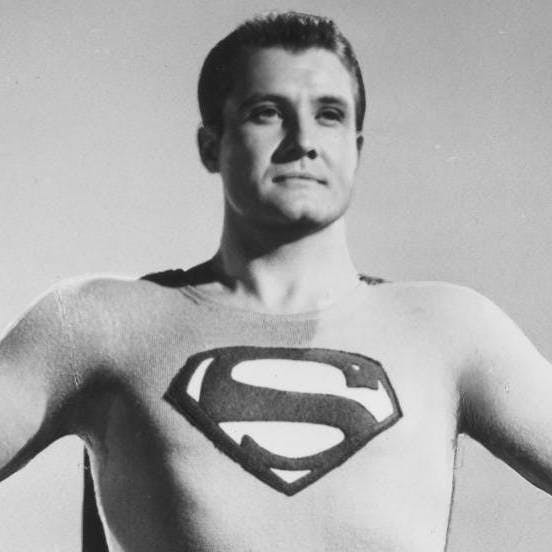
63: MGM Stories Part 8: Eddie Mannix
In the new Hollywood satire from the Coen Brothers, Josh Brolin plays a studio "fixer" named Eddie Mannix. The real Eddie Mannix was a New Jersey-born reputed gangster who rose through the ranks at MGM to become the studio's general manager. His position required ensuring that the darker, more scandalous actions of MGM’s biggest names were kept hidden from the public and press at large. While devoting his career to protecting the personal lives of MGM’s employees, Mannix had his own colorful personal life: a chronic adulterer with a history of domestic violence, he married his mistress Toni, who went on to have an open, Mannix-endorsed affair with Superman star George Reeves, whose death under mysterious circumstances hung a cloud over Mannix's legacy.
To learn more about listener data and our privacy practices visit: https://www.audacyinc.com/privacy-policy
Learn more about your ad choices. Visit https://podcastchoices.com/adchoices
44:3303/11/2015
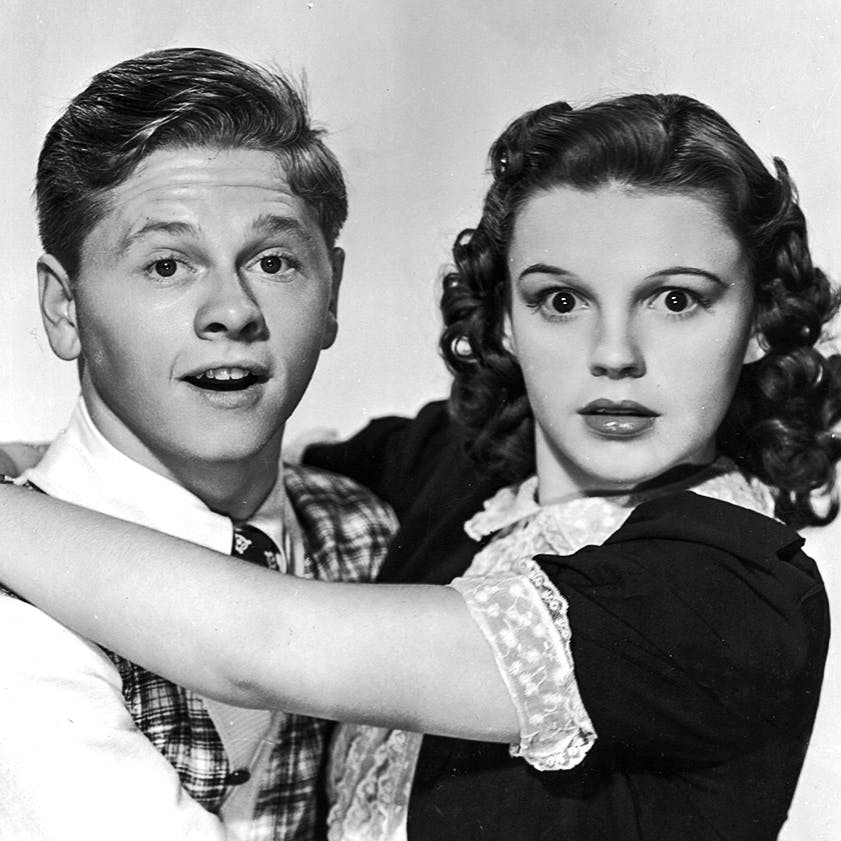
62: MGM Stories Part 7: MGM's children: Mickey Rooney and Judy Garland
After Irving Thalberg’s death in 1936, Louis B. Mayer doubled down on "family entertainment" at MGM. To support this new wave of content, Mayer started signing younger and younger performers to groom into stars — training them in song and dance, creating a schoolhouse on the MGM lot to comply with state educational requirements, and keeping the kids chaperoned by publicists day and night. This episode will cover the differing experiences of Mickey Rooney and Judy Garland -- best friends and screen partners who grew up together within MGM’s stable of child stars.
To learn more about listener data and our privacy practices visit: https://www.audacyinc.com/privacy-policy
Learn more about your ad choices. Visit https://podcastchoices.com/adchoices
45:2627/10/2015

61: MGM Stories Part 6: Jean Harlow
As part of the publicity campaign for his film Hell’s Angels, Howard Hughes made Jean Harlow a star, branding her “The Platinum Blonde.” But after Hell’s Angels, Hughes couldn’t figure out what to do with Harlow, so she ended up signing a contract with MGM, at the urging of Paul Bern, who became Harlow’s new impresario and husband. Despite the fact that Louis B. Mayer had dismissed her as a “floozy”, Harlow had five years of super stardom at MGM. But during that time, Bern died under mysterious circumstances — as did Harlow herself, in 1937, at the age of 26.
To learn more about listener data and our privacy practices visit: https://www.audacyinc.com/privacy-policy
Learn more about your ad choices. Visit https://podcastchoices.com/adchoices
46:0120/10/2015
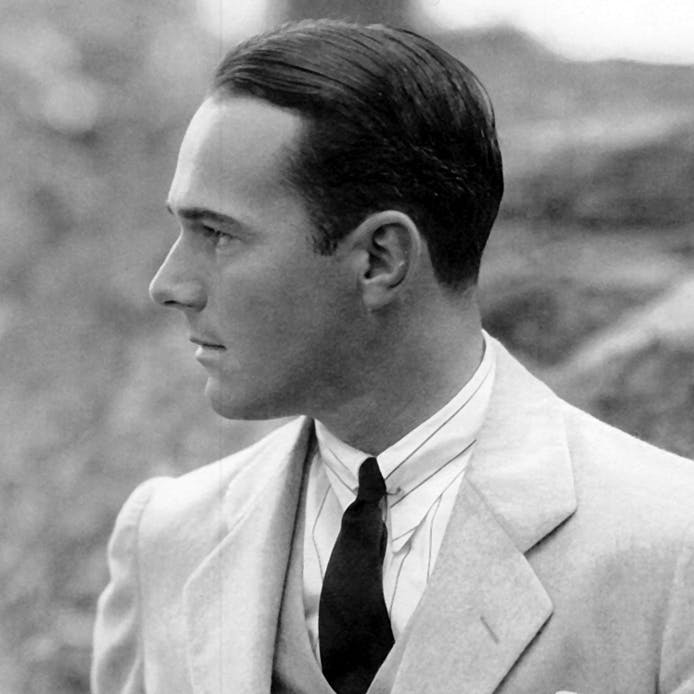
60: MGM Stories Part 5: William Haines and Hollywood’s First Openly Gay Marriage
The rare silent star who made a relatively smooth transition to sound films, William “Billy” Haines was one of the top box office stars of the late 1920s-early 1930s. Beginning in 1926, Haines started living with Jimmie Shields, and the two men became one of the most popular couples on the Hollywood social scene, facing little if any homophobia among the industry’s elite. But as times changed and the heat from the censors began to get hotter, MGM began to put pressure on Haines to pretend to be someone he wasn’t.
To learn more about listener data and our privacy practices visit: https://www.audacyinc.com/privacy-policy
Learn more about your ad choices. Visit https://podcastchoices.com/adchoices
41:4013/10/2015

59: MGM Stories Part 4: John Gilbert and Greta Garbo
Rising romantic lead John Gilbert signed with MGM in 1924 and the next year he starred in King Vidor’s The Big Parade, the studio’s biggest hit of the silent era. That same year, Louis B. Mayer brought his new discovery to Hollywood: an enigmatic Swedish actress named Greta Garbo. Garbo and Gilbert starred together in the romantic melodrama Flesh and the Devil, and began a relationship in real-life, which was eagerly exploited by the still-fledgling Hollywood publicity machine. Gilbert’s career suffered from his contentious relationship with Mayer, and his increasing alcoholism, while Garbo’s star continued to rise. In 1933, Garbo made it a condition of her MGM contract extension that the studio cast Gilbert as her love interest in Queen Christina. Within three years, Gilbert was dead. Within ten years, Garbo’s career had taken a turn, too. This episode was sponsored by Audible.com, with over 180,000 audio books and spoken word audio products. For a 30-day trial and FREE audiobook of your choice, go to audible.com/remember.
To learn more about listener data and our privacy practices visit: https://www.audacyinc.com/privacy-policy
Learn more about your ad choices. Visit https://podcastchoices.com/adchoices
40:2006/10/2015

58: MGM Stories Part 3: Buster Keaton’s Biggest Mistake
In 1928, silent comedy star Buster Keaton made what he would later call “the worst mistake of my career”: against the advice of fellow silent comedy auteurs like Charlie Chaplin, he gave up his independent production shingle and signed a contract with MGM. A vaudevillian who got his start working with Roscoe “Fatty” Arbuckle, by the late 1920s Keaton had established himself as a solo writer, director and star who was known for doing his own spectacular but reckless stunts. Keaton joined MGM with a promise from his friend Joe Schenck that nothing would change, only to find himself in his new situation demoted from artistic boss to employee of a corporation interested in protecting its investment above all. The lack of agency and ability to personally control the quality of his own work within the confines of Mayer’s studio drove Keaton to alcoholism, which further doomed his tenure at MGM. Keaton’s experience is perhaps the first major example of an indie filmmaker “selling out” to a big studio, only to be swallowed up by the system.
To learn more about listener data and our privacy practices visit: https://www.audacyinc.com/privacy-policy
Learn more about your ad choices. Visit https://podcastchoices.com/adchoices
47:2029/09/2015
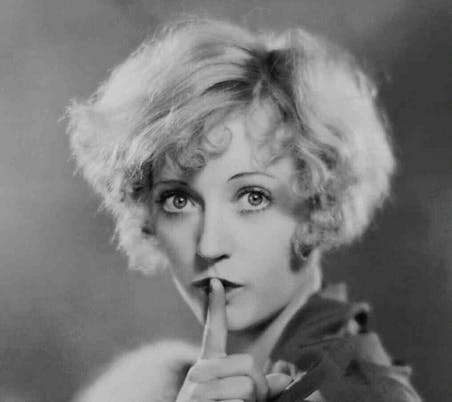
57: MGM Stories Part 2: Marion Davies, William Randolph Hearst, and Citizen Kane
Marion Davies is enshrined in memory as the gorgeous but questionably talented mistress of publishing magnate William Randolph Hearst -- thanks in part to the depiction of a Davies-esque character in Orson Welles’ Citizen Kane. But Davies’ involvement with the much older Hearst both ensured she would have a movie career, and perhaps doomed Davies to ridicule and limited stardom. This episode will explore how Davies and Hearst hooked up, the mutually beneficial working relationship between Hearst and Louis B. Mayer, the souring of that relationship over MGM’s (mis)use of Davies and Mayer’s effort to block the release of Kane on Hearst’s behalf.
To learn more about listener data and our privacy practices visit: https://www.audacyinc.com/privacy-policy
Learn more about your ad choices. Visit https://podcastchoices.com/adchoices
40:3822/09/2015

56: MGM Stories Part 1: Louis B. Mayer vs. Irving Thalberg
This season we're going to tell 15 stories about different people who worked at the same movie studio over the course of five decades, as the movie industry transitioned from silents to sound, into its Golden Era and finally into its television and counter-culture-hastened decline. Established in 1924, MGM was the product of a merger of three early Hollywood entities, but the only person working there who got to have his name in the title was studio chief Louis B. Mayer. For the first dozen years of its existence, Mayer’s influence over the company would be at least matched by that of producer Irving Thalberg, who was perceived as the creative genius to Mayer’s bureaucrat. This episode will trace the rise of MGM through the 1920s and early-mid 30s, covering Mayer’s long-evolving working relationship with Thalberg, the creation of the MGM “star factory” identity and unique power within the community of Hollywood, and the in-fighting which would end with Mayer poised to seize his crown as the most powerful man in Hollywood.
To learn more about listener data and our privacy practices visit: https://www.audacyinc.com/privacy-policy
Learn more about your ad choices. Visit https://podcastchoices.com/adchoices
43:3015/09/2015

55: Charles Manson’s Hollywood, Part 12: The Manson Family on Trial
The trials of the Manson family became a kind of public theater which a number of current and future filmmakers found themselves caught up in. Joan Didion bought a dress for a Manson girl to wear to court, Dennis Hopper visited Manson in prison, and a young John Waters attended the trial and took inspiration for his legendary film, Pink Flamingos.
To learn more about listener data and our privacy practices visit: https://www.audacyinc.com/privacy-policy
Learn more about your ad choices. Visit https://podcastchoices.com/adchoices
56:3811/08/2015

54: Charles Manson’s Hollywood, Part 11: Death Valley ’69
After the murders, Manson moved his family to the depths of the California desert. There, even before they were finally apprehended by the law, their utopia started to fall apart. Hollywood was in the process of being changed by Dennis Hopper's Easy Rider, a film shot partially in the same desert where Manson was now hiding. The Family and their flight to Death Valley -- and the impossible dream of the 60s revolution in general -- was soon thereafter unwittingly reflected in Italian filmmaker Michelangelo Antonioni's attempt to make a Hollywood studio film, Zabriskie Point, starring Hopper's future wife.
To learn more about listener data and our privacy practices visit: https://www.audacyinc.com/privacy-policy
Learn more about your ad choices. Visit https://podcastchoices.com/adchoices
48:2804/08/2015

53: Charles Manson’s Hollywood, Part 10: Roman Polanski After Sharon Tate
Roman Polanski was in London the night his pregnant wife was murdered in their home. He returned to Los Angeles, devastated, to find himself wanted for questioning in a crime which the LAPD, initially, had no idea how to solve.
To learn more about listener data and our privacy practices visit: https://www.audacyinc.com/privacy-policy
Learn more about your ad choices. Visit https://podcastchoices.com/adchoices
45:5128/07/2015

52: Charles Manson’s Hollywood, Part 9: August 8-10, 1969
Over the course of a single weekend, half a dozen hippies massacred seven people. This episode includes disturbing details about very violent crimes.
To learn more about listener data and our privacy practices visit: https://www.audacyinc.com/privacy-policy
Learn more about your ad choices. Visit https://podcastchoices.com/adchoices
52:0021/07/2015

51: Charles Manson’s Hollywood, Part 8: Sharon Tate and Roman Polanski
While trying to launch her own acting career, Sharon Tate fell in love with, and eventually married, Roman Polanski, the hotshot Polish filmmaker who had his first massive American hit in the summer of 1968, Rosemary’s Baby.
To learn more about listener data and our privacy practices visit: https://www.audacyinc.com/privacy-policy
Learn more about your ad choices. Visit https://podcastchoices.com/adchoices
34:2514/07/2015

50: Charles Manson’s Hollywood, Part 7: Sharon Tate and Jay Sebring
In the first of two episodes about the Manson Family’s most famous victim, we’ll trace actress Sharon Tate’s early years, her romance with celebrity hairdresser Jay Sebring, and the on-set affair that changed the course of Tate’s life and career.
To learn more about listener data and our privacy practices visit: https://www.audacyinc.com/privacy-policy
Learn more about your ad choices. Visit https://podcastchoices.com/adchoices
35:1007/07/2015

49: Charles Manson’s Hollywood, Part 6: Kenneth Anger and Bobby Beausoleil
The first person to go to jail for a Charles Manson-associated murder was Bobby Beausoleil, a charismatic would-be rock star who had put in time as a muse to Kenneth Anger -- child actor-turned-occultist experimental filmmaker and author.
To learn more about listener data and our privacy practices visit: https://www.audacyinc.com/privacy-policy
Learn more about your ad choices. Visit https://podcastchoices.com/adchoices
51:4030/06/2015

48: Charles Manson’s Hollywood, Part 5: Doris Day and Terry Melcher
Charles Manson became convinced his best chance at rock stardom was impressing Terry Melcher, a record executive who had made stars out of The Byrds, who was also Doris Day's son and Candice Bergen's boyfriend.
To learn more about listener data and our privacy practices visit: https://www.audacyinc.com/privacy-policy
Learn more about your ad choices. Visit https://podcastchoices.com/adchoices
47:4523/06/2015

47: Charles Manson’s Hollywood, Part 4: Spahn Ranch and the Beatles’ White Album
After wearing out his welcome at Dennis Wilson’s house, Manson moves his family to Spahn Ranch, a dilapidated Western movie set where the cult starts preparing for Helter Skelter, Manson's made-up apocalypse inspired by The Beatles.
To learn more about listener data and our privacy practices visit: https://www.audacyinc.com/privacy-policy
Learn more about your ad choices. Visit https://podcastchoices.com/adchoices
43:2916/06/2015

46: Charles Manson’s Hollywood, Part 3: The Beach Boys, Dennis Wilson, and Charles Manson, Songwriter
In this episode we’ll talk about Charlie Manson’s arrival in Los Angeles, discuss Dennis Wilson’s life and the role he played in enabling Manson’s rock n’ roll delusions, and explain how The Beach Boys came to record a song written by Charles Manson.
To learn more about listener data and our privacy practices visit: https://www.audacyinc.com/privacy-policy
Learn more about your ad choices. Visit https://podcastchoices.com/adchoices
50:0209/06/2015

45: Charles Manson’s Hollywood, Part 2: How Manson Found His Family
Today we're tracing Charles Manson's life from his birth to a teenage con artist, through multiple stints in reform schools and prisons, and finally to San Francisco circa 1967, where Manson began to try out his guru act on the local hippie kids.
To learn more about listener data and our privacy practices visit: https://www.audacyinc.com/privacy-policy
Learn more about your ad choices. Visit https://podcastchoices.com/adchoices
39:1702/06/2015

44: Charles Manson’s Hollywood, Part 1: What We Talk About When We Talk About The Manson Murders
This season, You Must Remember This will explore the murders committed in the summer of 1969 by followers of Charles Manson. Today, we’ll talk about what was going on in the show business capital that made Manson seem like a relatively normal guy.
To learn more about listener data and our privacy practices visit: https://www.audacyinc.com/privacy-policy
Learn more about your ad choices. Visit https://podcastchoices.com/adchoices
40:1426/05/2015

43: Star Wars Episode XVI: Van Johnson
Van Johnson was MGM’s big, all-American heartthrob during World War II, an one of the most reliably bankable stars in Hollywood, on and off, for over a decade. Off-screen, he was an introvert with a mysterious personal life.
To learn more about listener data and our privacy practices visit: https://www.audacyinc.com/privacy-policy
Learn more about your ad choices. Visit https://podcastchoices.com/adchoices
46:3628/04/2015

42: Star Wars Episode XV: Why John Wayne Didn’t Sign Up
No actor on movie screens in the 1940s embodied American patriotism and unpretentious masculinity better than John Wayne. But Wayne didn’t have the defining experience of most adult American men of the 1940s — Wayne didn’t enlist to serve in World War II.
To learn more about listener data and our privacy practices visit: https://www.audacyinc.com/privacy-policy
Learn more about your ad choices. Visit https://podcastchoices.com/adchoices
38:2221/04/2015

41: Star Wars Episode XIV: Frank Sinatra Through 1945
Frank Sinatra's rise to fame coincided almost exactly with the run up to and fighting of World War II. Unlike so many young men, famous or otherwise, Sinatra didn't enlist, and the controversy over whether or not he was a draft dodger hung over his head.
To learn more about listener data and our privacy practices visit: https://www.audacyinc.com/privacy-policy
Learn more about your ad choices. Visit https://podcastchoices.com/adchoices
34:2014/04/2015

40: The You Must Remember This One Year Anniversary Ask Us Anything Show
You Must Remember This turns one year old this month, and to celebrate, Karina takes questions from listeners. Topics range from book recommendations to the blacklist to baseball to Karina’s abandoned, unfinished novel.
To learn more about listener data and our privacy practices visit: https://www.audacyinc.com/privacy-policy
Learn more about your ad choices. Visit https://podcastchoices.com/adchoices
48:4807/04/2015

39: Star Wars Episode XIII: Walt Disney
Walt Disney changed Hollywood and brought millions of children and adults boundless joy. And yet, Disney’s legacy is marred by the common perception that he was also a racist, misogynist and anti-semite.
To learn more about listener data and our privacy practices visit: https://www.audacyinc.com/privacy-policy
Learn more about your ad choices. Visit https://podcastchoices.com/adchoices
47:5031/03/2015

38: Star Wars Episode XII: Bob Hope vs. Bing Crosby
Bob Hope is remembered as the 20th century celebrity most devoted to entertaining the troops. Bing Crosby, Hope’s partner on seven Road to… films, sang the song that became an unlikely alternate national anthem during World War II.
To learn more about listener data and our privacy practices visit: https://www.audacyinc.com/privacy-policy
Learn more about your ad choices. Visit https://podcastchoices.com/adchoices
47:2424/03/2015

37: Star Wars Episode XI: Charlie Chaplin
Charlie Chaplin’s most successful (and controversial) film was The Great Dictator, a vicious satire of Adolf Hitler. We’ll explore the connections between the two men, and explain why most of Hollywood tried to stop the film from being made.
To learn more about listener data and our privacy practices visit: https://www.audacyinc.com/privacy-policy
Learn more about your ad choices. Visit https://podcastchoices.com/adchoices
41:3617/03/2015





